
When Disaster Strikes, Will Your Community Be Ready?
Part One
Published July 2018

Editor’s Note: This is the first part of multiple best practices on preparing your community for a hurricane and what to do after the hurricane to help your community recover from it. The second part will be published in the August issue.
 Did a Hurricane Damage Your Patio Furniture?
Did a Hurricane Damage Your Patio Furniture?
By Tammy Leeman
One important thing to consider post-hurricane is whether your patio furniture is in good structural condition. If it is and the furniture only suffered damage to the finish, slings, or strapping, then your property should consider restoration. If the finish is worn, chipped, or peeling, you should consider a powder coating restoration process. If the finish on the frames is still in great condition, then simply re-strapping or re-slinging is also an option. You can completely update the look of your furniture and save your property a lot of money at the same time!
The restoration process involves completely stripping off the old, dull finish by sandblasting with aluminum oxide. The metal surface is then pretreated with a five-stage chemical pretreatment process. This properly prepares the patio furniture for the powder coating application. The powder is sprayed onto the metal surface of the furniture that is then baked in an industrial oven to cure the powder to a beautiful, long-lasting, final finish. Once the powder coating process is completed, the new straps or sling materials are installed along with any protective foot glides to protect flooring.
For more information, call Absolute Patio Furniture Restoration at (954) 917-2715 or email tammy@absolutepowdercoat.com.
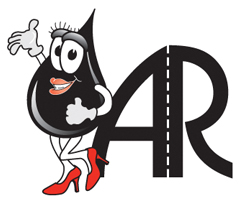 Hurricane Preparedness for Your Roadways and Parking Areas
Hurricane Preparedness for Your Roadways and Parking Areas
By Connie Lorenz, President
As we prepare for another hurricane season, it is important for communities to make sure their roadways are safe to travel on should an emergency evacuation take place. Our roadways are in place to help us travel safely from one place to another. During hurricanes when we are in crisis mode, there is nothing worse than driving through what seems to be a safe puddle only to find out there is a crater the size of Epcot in the center of it!
These open areas of pavement seem innocent now, but come hurricane rains and poor drainage, these small areas of concern can open up, causing the entire roadway or parking area to fail if you aren’t careful. Your sub-base is the true stabilizing factor of your pavement. Therefore, keeping it stable and in place is by far the best way to protect your pavement and your residents during the upcoming 2018 hurricane season.
For more information on Asphalt Restoration Technology Systems, call (800) 254-4PDC (4732) or (866) REJUVN8 (735-8868) or visit www.asphaltnews.com.
 Only As Good As Its Execution
Only As Good As Its Execution
By Gayon Bramwell
Every community association knows how daunting it can feel to prepare for hurricane season. As an industry-leading community management firm, we know a hurricane plan is only as good as its execution. Our number one recommendation for preparedness is implementing a dry run before hurricane season. This proactive approach requires all staff members to simulate the hurricane warning experience by physically moving and storing any outside furniture, noting all special arrangements for equipment, and completing a comprehensive hurricane checklist with constant communication to residents every step of the way. The dry-run approach is the key to a culture of preparedness we provide for each association and allows residents to remain assured of their safety and confident in their security.
For more information on Castle Group, call (844) 815-5321 or visit www.castlegroup.com.
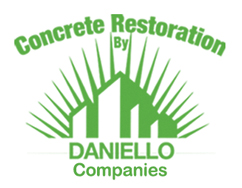 Say “No” to Towels!
Say “No” to Towels!
By Lou Daniello, President
Do not place towels or other materials in front of the sliding glass doors in hopes of preventing water intrusion. The door tracks have weep holes that are designed to allow the water to escape outside in the event that it does blow through the tracks into the apartment. The towels only block this action and will not allow the water to exit the tracks to the outside.
For more information on Daniello Companies, call (888) 370-4333 or visit www.concreterepairing.net.
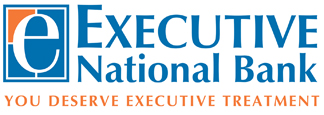 List All Authorized Bank Signers
List All Authorized Bank Signers
By Executive National Bank
As a best practice for disaster preparedness, associations should list all authorized bank signers in their disaster plan, along with the contact information for their bank and any other critical vendors. It’s also recommended that associations consider obtaining a line of credit to cover the deductible and/or other expenses not covered by insurance.
For more financial disaster planning advice, contact us at (305) 662-4700. Executive National Bank; Member FDIC, EHL.
 Inspect Your Building
Inspect Your Building
By John Greenwood
Our Florida bats (Microchiroptera) only need a tiny gap of half an inch or so to enter a structure, and this is even before the summer storms (not to mention hurricanes) take their toll on our buildings.
After the passing of each storm, Friends of Bats highly recommends a visual inspection of the building, looking for loose, shifted, or missing tiles and lifted flashing and soffits. In the October 2017 edition of FLCAJ, we published an article showing how to spot signs of a colony infestation. We would be happy to provide a copy—just drop me an email!
For further information, please contact john@friendsofbats.com, call 1-888-758-BATS (2287) or visit www.FriendsOfBats.com.
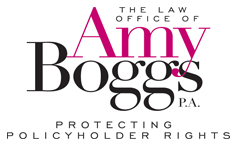 A Few Quick Tips
A Few Quick Tips
By Amy D. Boggs, Esq.
Hurricane season is here! If your association is unfortunate enough to be affected by a hurricane this year, a few quick tips from my years of representing associations in insurance claims will help:
- Make a claim with your insurance company—not your agent—immediately.
- Document all damage and emergency work performed through photographs, receipts, and video.
- Retain an attorney or public adjuster to assist the association with its claim. The insurance company will have an adjuster, engineer, and contractor working against you. The association needs professionals working on its side.
- The insurance policy is complicated, involving co-insurance, deductibles, and sub-limits. The association needs to understand its rights.
- The board must fulfill its fiduciary duty to the members by fully vetting any coverage decision and damage estimate prepared by the insurer. The board should not simply accept the insurer’s decision. It should get a second opinion on all aspects of the claim.
For more information on the Law Office of Amy Boggs P.A., call (727) 954-8833 or visit www.amyboggslaw.com.
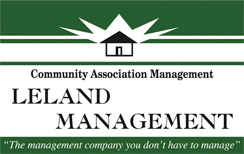 Write Down Your Hurricane Preparedness Plan
Write Down Your Hurricane Preparedness Plan
By Gary van der Laan, Senior VP & Brevard Division Director
Have a hurricane preparedness plan in writing that is shared with the community. Include information on who to contact for assistance before, during, and after the storm, and provide a list of items residents should have with them. Check your insurance policies to make sure they are up to date and have the appropriate amounts of coverage. This is also a good time to do a thorough inspection of your community to note the condition of roofs, public buildings, and common areas. Take pictures so you have an existing record of conditions pre-storm. Your management company can assist you with your hurricane preparation, so reach out to them for guidance. It’s never too early to begin preparation; disaster planning should be part of your annual routine.
For more information on Leland Management, call (888) 465-0346 or visit www.LelandManagement.com.
 Contingency Line of Credit
Contingency Line of Credit
By Rebecca R. Prieto, VP, South Florida Sr. Relationship Manager
Is your association hurricane ready? When a hurricane strikes, preparation can provide peace of mind. Here’s how to plan ahead:
- Document all assets so you’re prepared for insurance claims.
- Purchase flood insurance separately, especially if you live in a coastal area, to ensure coverage for possible damage from tidal surges.
- Consider a contingency line of credit from a bank that specializes in community association financing, to help with deductibles and/or emergency repairs.
For more information on Popular Association Banking, a division of Popular Bank, call (800) 233-7164 or visit www.AssociationBankers.com.
The information above is for informational purposes only, is intended to provide general guidance, and does not constitute legal or professional advice. You should seek the advice of a professional advisor and/or legal counsel to address your specific needs regarding the issues related to your situation. Popular Bank does not make any representations or warranties as to the content contained herein and disclaims any and all liability resulting from any use of or reliance on such content.
 Emergency Communication Is Most Effective When Routine and Hi-tech Channels Are Used
Emergency Communication Is Most Effective When Routine and Hi-tech Channels Are Used
By Nicole Bennetsen, Division Manager
A homeowners association, in most areas of Florida, has a one-in-ten chance of sustaining some annual damage from a hurricane. Having an emergency resident communication approach in place before, during, and after the emergency is very important.
The foundation of every emergency plan is having good, routine channels of communication with residents already in place. A community website and electronic newsletters are always good ways to get out vital information. Official social media sites for the community can also help provide useful information.
During an emergency, time is of the essence; old information can be dangerous and lead to confusion if seen too late. At the same time, communication tools need to be easy to use, so the person sending out information and updates can do so quickly and easily. Two additional approaches are highly effective in times of emergency:
- Phone chains and hotlines, especially when personal cell phones are the primary device for contact.
- An association app, like the customizable CommunityAPP™ available thorough Sentry Management, that can send push notifications directly to users’ phones.
For more information on Sentry Management, call (800) 932-6636 or visit www.sentrymgt.com.
 Be Prepared!
Be Prepared!
By Debbie Bondonzi
Hurricane season is here, and it is important to be prepared for the devastating effects that could happen during a major storm. Hurricane-force winds can cause debris to shatter windows and doors that are not impact-resistant. When these powerful wind gusts enter a home, they can deliver damage as severe as losing the roof. That’s why we build products that protect against the everyday and once-in-a-lifetime. Consider purchasing impact-resistant windows and doors to keep your family safe this season.
For more information on WinDoor, call (407) 481-8400 or visit windoorinc.com.

